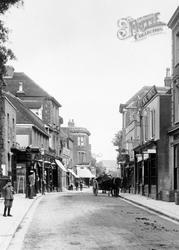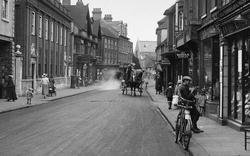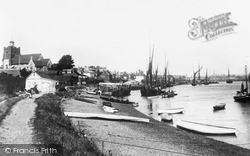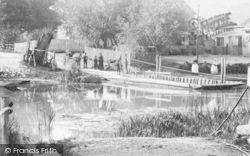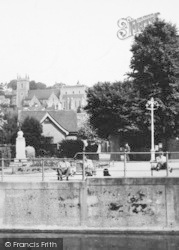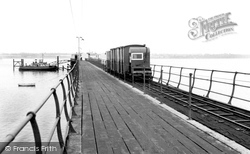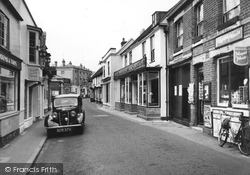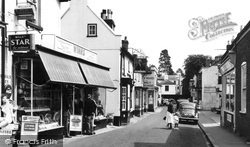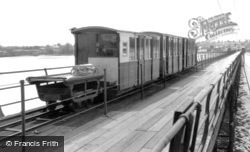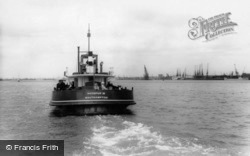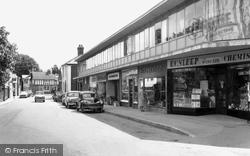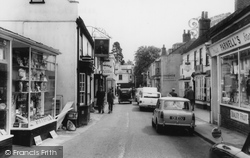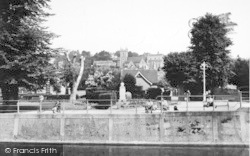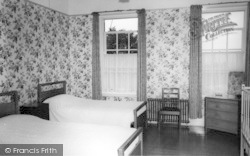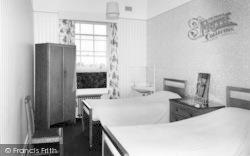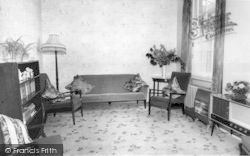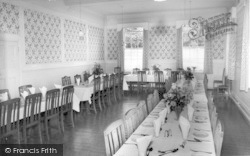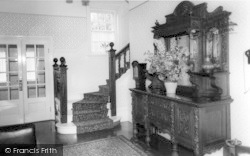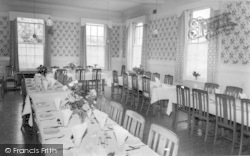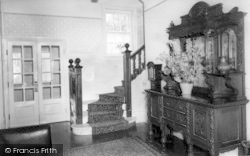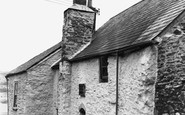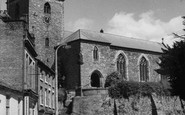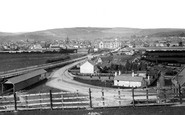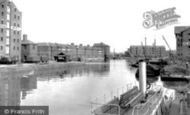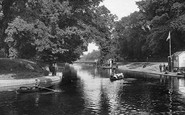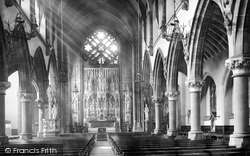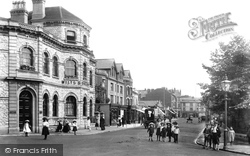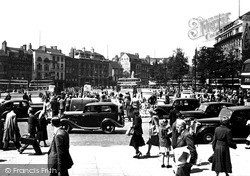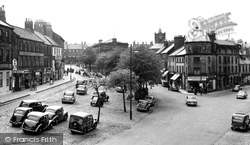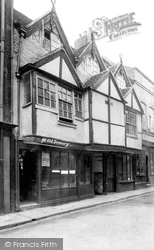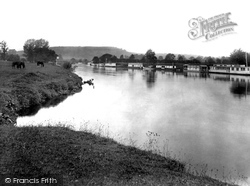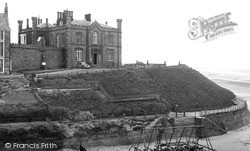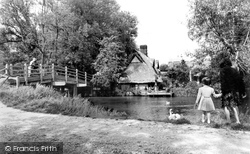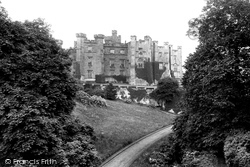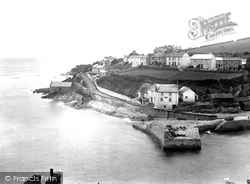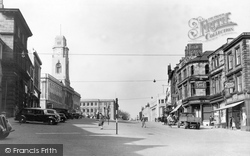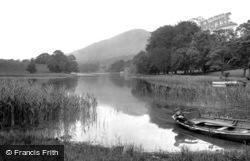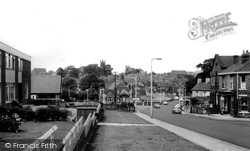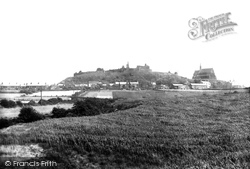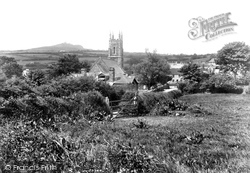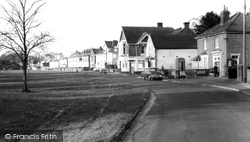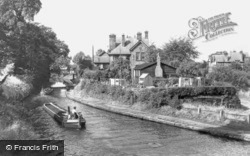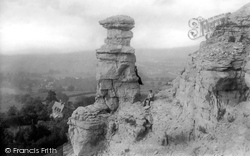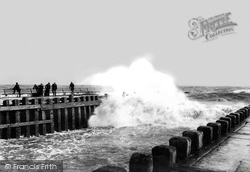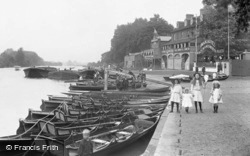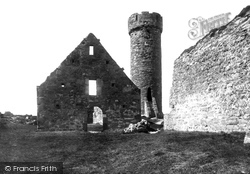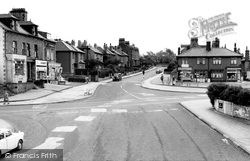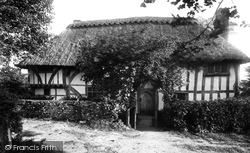Places
18 places found.
Those places high-lighted have photos. All locations may have maps, books and memories.
- Hythe, Kent
- Hythe, Hampshire
- Small Hythe, Kent
- Bablock Hythe, Oxfordshire
- Methwold Hythe, Norfolk
- Hythe, Somerset
- Hythe, Surrey
- Hythe End, Berkshire
- The Hythe, Essex
- Egham Hythe, Surrey
- West Hythe, Kent
- New Hythe, Kent
- Broad Street, Kent (near Hythe)
- Horn Street, Kent (near Hythe)
- Newbarn, Kent (near Hythe)
- Newington, Kent (near Hythe)
- Broad Street, Kent (near Hythe)
- Stone Hill, Kent (near Hythe)
Photos
360 photos found. Showing results 141 to 160.
Maps
101 maps found.
Books
10 books found. Showing results 169 to 10.
Memories
4,406 memories found. Showing results 71 to 80.
Life In Full Circle
The little house next to Mary Newman`s Cottage is where I live now...but I first walked past it with my mother at about the time this photo was taken. We got off the steam train at the station just up the hill, to walk to the ...Read more
A memory of Saltash in 1955 by
Woofy And The Bungalow.
I was in Founders house 1962 - 64. Mr Gentry (Duck Billed Platypus) was housemaster and Twiggy his wife (thin as a lathe she was). I decided to get into bricklaying and ended up with Mr Cliffe as our building teacher (Woofy) was ...Read more
A memory of Tiffield by
Good Old Days
i lived at 13ward gardens just by the village green.spent my youth there until moving to new zealand when i was 25,spent many a day fishing for sticklebacks in the stream by the pond back in 1964,as i got older spent many an hour in the ...Read more
A memory of Cippenham by
Upper Heyford School
My father was stationed at RAF Upper Heyford 1949 to 1953. My brothers, Peter, Michael and myself, Mary, went to the village school. My older brother Richard went to school in Steeple Aston. I remember the two ...Read more
A memory of Upper Heyford in 1949 by
Yesterday's Birch
I REMEMBER BIRCH IN 1960'S. THE VILLAGE SHOP WAS RUN BY A JEWISH MAN CALLED MR WOLFE. WHEN YOU CROSSED THE ROAD ON TO WHITTLE LANE THERE WAS A ROW OF HOUSES THAT WERE ATTACHED TO THE WHITE HART PUB . AS YOU WALKED UP THE LANE ...Read more
A memory of Birch by
Childhood In Welshpool
I was born & spent my childhood in Welshpool. St Mary's was our Parish Church, it has beautiful stained glass windows which always fascinated me as a child. I was christened and confirmed in this Church and later in May 1965 ...Read more
A memory of Welshpool in 1965 by
Leaving A Mark On The Landscape
It was 1966 myself and 2 colleagues were bouncing across the downs in a Landrover when I first saw Imber. What a beautiful little village nestled in the bottom of the valley. It's red brick manor house next to the church and ...Read more
A memory of Imber by
Railway Info.
The building on the left is a carriage shed, used for holding spare passenger vehicles under cover. It is from the North Devon Railway in the 1850s and still appears to have broad gauge track (7ft gauge - not removed until 1877) laid ...Read more
A memory of Barnstaple in 1870
'sabrina'.
I am certain the steamer is 'Sabrina' built in 1870 and was the steam inspection launch of the Directors and Engineer of the Gloucester and Berkeley Ship Canal, Gloucester. In 1912 'Sabrina' was owned by the Dock Company and did not leave ...Read more
A memory of Gloucester in 0 by
The Canal.
I was born in Hythe and spent all my childhood there. My brother, sister and I used to walk home from school along the canal bank. In the holidays we would take jam jars and catch tadpoles. In the winter, we would slide on the frozen water.
A memory of Hythe by
Captions
4,899 captions found. Showing results 169 to 192.
Designed by the famous Pugin family of architects, its ornate interior added in the 1880s has found favour with architectural historians. The church was completed in 1906 by the addition of a tower.
The clothing is particularly interesting: some remnants of Victoriana are counterpointed by the somewhat rakish outfit sported by the chap on the right.
Another moment in the square caught by the camera. This appears to be lunchtime judging by the number of peo- ple taking their ease.
In the centre, partially hidden by trees, is the Northumberland Hall, built in 1826 by the third Duke to provide the town with an assembly rooms.
It was crammed with medieval buildings and spanned by the cathedral lych (or lich) gate, but had fallen into decline by the early years of the 20th century.
In the Stourport basin, in dry dock by the big wharf, boats can be refurbished; the basin, reached by the canal through locks, was built to accommodate and service longboats with a full
Cliff House was built in the mid 19th century by the Pease family, who owned the nearby Upleatham Ironstone Mines. It was sold to the Holiday Fellowship organisation before the Second World War.
Bridge House and the bridge over the Stour are now owned by the National Trust.
In 1633 it was sold by the King's Commissioners and passed through a number of hands; it was bought by the banker and financier William Russell in 1796.
Porthleven's first lifeboat, in 1863, was the 'Agar Robartes', which was replaced in 1882 by the 'Charles Henry White'.
Barnsley was founded by the monks of St John's Priory, Pontefract, after they had been granted the manor and rights to hold weekly markets and annual fairs.
A short distance downstream from Fell Foot, a young boy watches for fish in the shallow, reed-grown water by the shore, apparently in charge of a large rowing boat.
Greasbrough was once described as a pleasant village 'situated on a delightful eminence'; by the early 19th century it was a farming and mining community of over 1,000.The skyline is dominated by the
If only as an important viewpoint, the site was bound to have been used by the Romans and Saxons.
In the distance is the hill of Brentor, topped by the 12th-century church of St Michael de Rupe, which was restored by the Duke of Bedford in the 19th century.
We can assume that it is winter by the look of the tree. A lady waits for her husband beside their car. Has he leaned an item of furniture against the telephone box?
A pair of Horsfield's craft are carrying coal, the once horse-drawn butty (the 'Marjorie') towed by the motorised narrow boat.
A pair of Horsfield's craft are carrying coal, the once horse-drawn butty (the 'Marjorie') towed by the motorised narrow boat.
This is not a natural rock formation, but one carved out deliberately by the quarrymen extracting building stone, used for the construction of Cheltenham, from this precipitous cliff face.
This spectacular swell, stirred up by the prevailing south-westerly winds, demonstrates not only the need for the massive solidity of these stone and wooden jetties against the power of the sea, but
Here, as we look downstream by the former ferry and towpath, working barges mingle with leisure rowing boats for hire.
Built in the Irish style, the round tower dates from the 10th or 11th centuries, and would have been used by the monks as a place of refuge during raids by pirates or Vikings.
Shops and a post office overlook the junction in the centre of the village by the railway station. Just along Station Road, on the left by the chemist is the Marine Café.
Almost ruinous when acquired by the National Trust as its first building in 1896, the clergy house was carefully restored.
Places (18)
Photos (360)
Memories (4406)
Books (10)
Maps (101)




